You are 10 Weeks Exactly 210 days to go…
The placenta is rapidly developing and once it’s fully formed, will supply all your baby’s needs.
Your baby today
The bones of the front of the skull are starting to grow over the baby’s forehead and harden from cartilage to bone. The forehead is still very prominent and the top of the head still very flexible to accommodate the baby’s rapidly developing brain.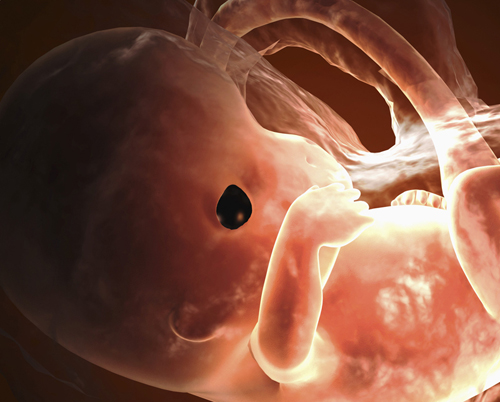
A milestone in your baby’s development—the placenta takes over from the yolk sac to provide your baby with nutrients. Just like your baby, the placenta has needed to grow and develop a circulation to support the ever-increasing demands that are being placed on it.
One week into the pregnancy, the placenta formed a distinct inner and outer layer of cells that gradually penetrated the lining of the uterus, with fingerlike fronds. You may have noticed a very slight bleed at this implantation stage . More and more fronds spread out into the lining of the uterus, which itself undergoes a transformation process that enables each frond or villus to be bathed by small pools of maternal blood, enabling oxygen and nutrient transfer to take place.
Up until now, this blood flow has been limited by plugs of tissue, but at this stage of pregnancy these plugs begin to disappear. This means the placenta is sufficiently developed to withstand the pressure of maternal blood on each delicate villous. Villi will continue to branch out until around 30 weeks of pregnancy.
… Nutrition
Refreshing melons
Staying hydrated is essential throughout pregnancy. A good tip is to eat fruit that is high in water. Water contained in fruit is easily absorbed into the body, because fruit contains natural sugars that draw water into the bloodstream. Melons—watermelon, cantaloupe, and honeydew—are naturally high in water. In addition, their mellow and less acidic nature make them well tolerated in pregnancy.
In addition to staying hydrated, by eating melons you will get some extra folate, as well as other vitamins and nutrients. Try combining melons with cottage cheese or yogurt, sprinkled with granola, for a light meal, or blend them into a nutritious smoothie.
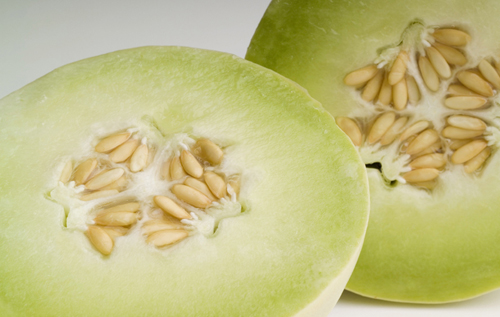
… Doctor
| Q: | What is meant by Rhesus negative? |
| A: | Red blood carries a positive or negative Rhesus factor (Rh-factor). Problems arise if a Rh-negative woman carries a Rh-positive baby who has inherited the Rh-positive status from the father. If the mother’s blood comes into contact with the baby’s during delivery, she may produce antibodies against it. This may cause problems in subsequent pregnancies when a mother’s antibodies attack the cells of another Rh-positive baby, which can lead to severe anemia and heart failure in the baby after the birth. You will be given Rh immune-globulin to combat this. |
Actual size of your baby
After 10 weeks your baby’s crown to rump length is 1.2 in (3 cm).
9 weeks
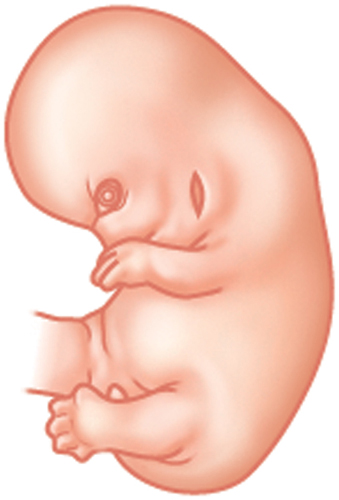
10 weeks
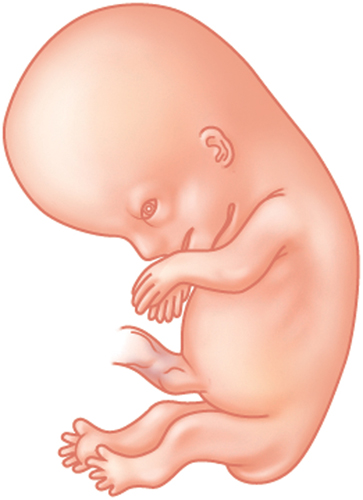
Your 11th Week
Your baby is now unmistakably human and is undergoing many sophisticated changes, such as development of the sense organs. To mark his new status, he’s now called a fetus. If pregnancy hasn’t seemed quite real to you so far, it soon will. It’s time to get down to such practicalities as your first prenatal checkup. Procedures such as ultrasound scans and blood tests are about to become part of your normal pregnancy routine.
NOTE
You’ll now be setting up the health care that will support you over the coming months
Fetus at 11 weeks
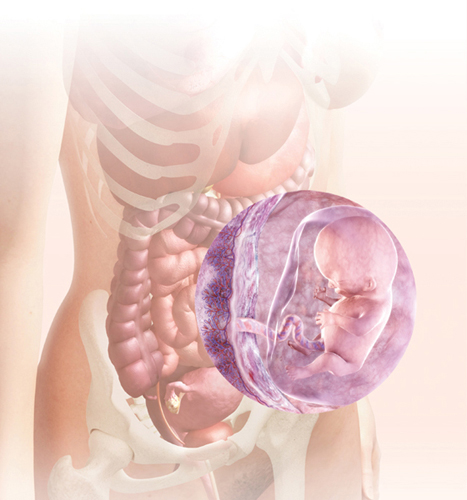
You are 10 Weeks and 1 Day 209 days to go…
Your prenatal care begins with your first appointment, where you will get to talk with your ob/gyn about your pregnancy care.
Your baby today
In this side view of a fetus, the right ear and eye are just visible and the right hand and leg can be seen in characteristically bent positions. The reddish, tubelike structure, to the right of the image, is the umbilical cord.
You should have your first prenatal appointment around now. The exact timing of it will vary depending on when your doctor sees pregnant patients for the first time. This is the first time you will see your ob/gyn during pregnancy. Unless your doctor has a solo practice, your prenatal team is likely to consist of several doctors who will take care of you throughout your pregnancy.
The purpose of this appointment is for a doctor to obtain your medical history, provide information, and plan your care for pregnancy and the birth. It’s also an opportunity for you to ask any questions you may have and discuss the schedule for appointments, blood tests, scans, and prenatal classes. You will be given booklets, information leaflets, and important contact telephone numbers. The doctor will ask you about your medical history; your family’s medical history; your partner and your partner’s family’s medical history; about any previous pregnancies you have had; and how this pregnancy has been so far.
Your answers will help the doctor identify factors that may affect your pregnancy, for example if there is a family history of preeclampsia. The doctor will also do some health tests, such as urine tests, at this and other prenatal appointments.
At your prenatal appointments you will have routine checks, including taking your blood pressure. It’s the doctor’s job to take care of your health throughout pregnancy.

Midwife comes from the anglo-saxon word “mit wif,” meaning “with woman.”
A midwife’s role is to respect the ability of a woman to give birth independently, and to only intervene when it is essential to do so.
… Doctor
| Q: | How should I decide which tests I want? |
| A: | Your doctor will give you lots of information regarding tests and it is up to you to decide whether you want them. There are two different types: screening tests and diagnostic tests. The goal of screening tests is to figure out the risk of there being a problem—based on the result, you may be advised to have a follow-up diagnostic test. Most women opt to have the screening tests, but it’s worth considering how far you would continue with the process. For example, if you had a high-risk result from the screening test, would you opt to have a diagnostic test? If you did, and the results of that were positive, would you want to continue with the pregnancy? Such considerations are difficult but important. For example, if you know that, no matter what, you and your partner would want to continue with the pregnancy then you may decide not to have a test, or decide to have the test so that you can prepare yourself for a baby with potential problems. |